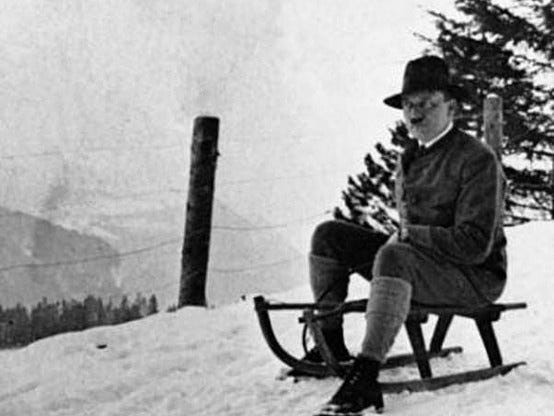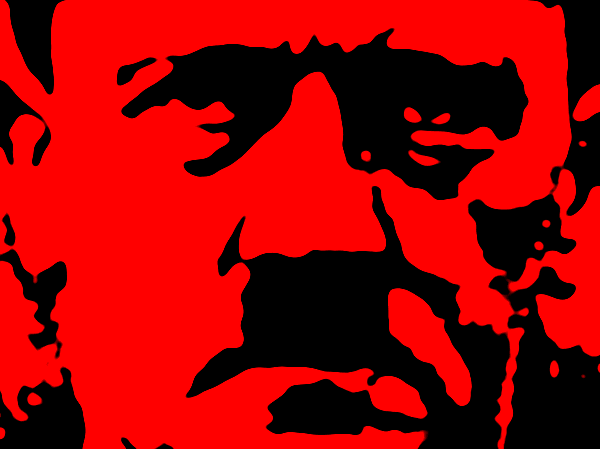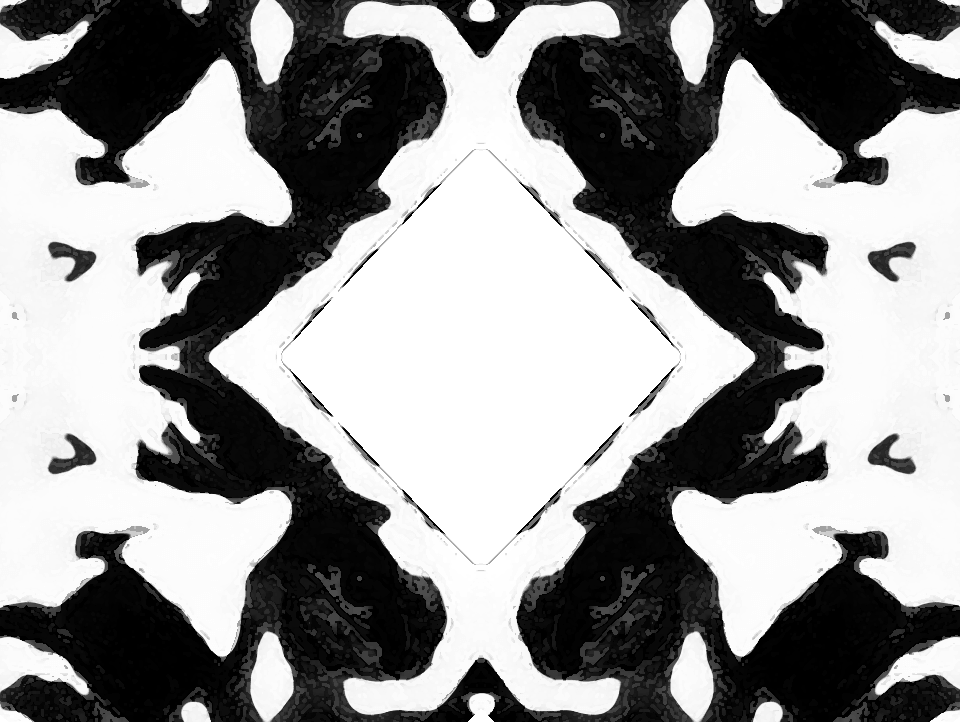Apophenia
How the Internet Transforms the Individual into a Conspiracy of One
1.
The easier it becomes to produce information, the harder that information becomes to consume — and the harder we have to work to separate the spurious from the significant.
Humans are meaning-making machines, seeking order in the chaos. Our pattern recognition capabilities are a key determinant in defining intelligence. But we now live in a dystopian digital landscape purpose-built to undermine these capabilities, training us to mistake planned patterns for convenient and even meaningful coincidences.
You know the drill: email a colleague about the shit weather and start getting banner ads for cheap flights to Corsica (I hear it’s nice?); google "ordination license" or "city hall hours" and watch your inbox fill with rebates for rings and cribs. For those of us who grew up during the rise of surveillance capitalism, our online experience has been defined by the effort of separating coincidence from cause-and-effect. Today we understand, if not accept, that hyper-consumption of information online comes at the cost of being hyper-consumed, bled by tech companies for the that data our readings secrete: You click, and the Big Five scrape a sample of your “preferences”—to exploit.
The real cost to this recursive construction of reality from the ephemera of our preferences is that it tailors a separate world for each individual.
And when you do live at the center of a private world, reverse-engineered from your own search history, you begin to notice patterns that others can’t. Believe me when I say I know what it feels like to be told that you’re the only one who sees the connection—a pattern of injustice, say—and that you’re downright crazy for noticing anything at all. To manufacture meaning from mere coincidence is the essence of paranoia, the gateway to world-building your own private conspiracies—or else to an epiphany that allows you to see the world as it actually is.
I want to talk about that epiphany, about taking back control of our atomized, pre-conspiracy world.
2.
The German psychologist Klaus Conrad called this premonitory state apophenia, defined as perceiving patterns that don't actually exist and referring them back to an unseen authority who must be pulling the strings. It’s a theory he developed as an army medical officer specializing in head traumas under the Third Reich. Today, it’s analogized to political conspiracy thinking.
Consider Case No. 10: a German soldier at a filling station refuses to service a patrol that doesn’t have the proper paperwork. Chalk his behavior up to that infamous Nazi officiousness, but when the patrol returns, papers in hand, the soldier still refuses to obey orders. His pattern recognition has gone into overdrive, and he’s begun to see every detail—a locked door, these patrolmen, papers signed or unsigned—as a test. His paranoid disobedience lands him in the psych ward, where Conrad writes him up as one of 107 cases that revolutionizes the Germano-sphere’s understanding of human psychology.
Conrad became famous for recognizing this oppressive emergence of patterns as a pre-psychotic state that he compared to stage-fright. It culminates in a false epiphany: an apophany is not a flash of insight into the true nature of reality but an aha experience (literally: Aha-Erlebnis) that constitutes the birth of delusion. The entire universe has “turned back” and “reorganized itself” to revolve around the individual, performing and corroborating his suspicions.
Shakespeare said that all the world’s a stage. But in this case it’s staged specifically for you, the audience who's also the star.
For someone obsessed with the pathology of conspiracy, Conrad was pretty susceptible to conspiratorial thinking himself. Born in Germany and raised in Vienna, his loyalties to the Nazi Party preceded his military duty. He joined in 1940 when his earlier research in hereditary epilepsy looked like promising fodder for the Nazi's monstrous sterilization laws. Maybe it was careerist opportunism, maybe it was ideological. Or maybe it takes one delusion-obsessed man to recognize another: Hitler was one of greatest conspiracy theorists of all time.
Only Conrad’s scientific findings aren’t themselves delusional. In fact he ended up being one of the only Nazi scientists to be producing science without rockets, torture, or pentagrams. The traumatized soldiers he treated on the battlefield turned out to be good data, and the hundreds of cases he worked on allowed him to work out the laws of ”Gestalt” (i.e. ‘pattern’) psychology, a school of thought that argues the human mind grasps in an instant not just individual elements of an information set, but entire configurations or patterns. For example, when we see alternating bars of light, they appear to be moving, even though they're not — our brains are just recalling patterns related to the perception of motion and applying them to stationary objects.
In an apophenic state, everything’s a pattern. And while Conrad’s stage-model uses the analogy of starring in your own one-man show, the narcissism of living online today provides plenty more. On Instagram you can filter your face, filter out unwanted followers, construct an image that you and your peers want to believe in—you’re living a private illusion, in public, that the world reifies with likes. For-profit data collection has literally “reorganized” the world to revolve around you. As you wish it—or they will it.
The true epiphany, I want to argue, is that you’re the one pulling the strings. Enlightenment is to realize you have more agency than your push-notifications would have you believe.
3.
Here’s a better way to think: in an apophenic, information-glutted world where you can basically find evidence for any theory you want, where people inhabit separate online realities, we should focus on falsifiability (which can be tested for) over supportability (which cannot).
This what what the Austrian Jewish sociologist Karl Popper, refugee of the Holocaust in New Zealand and later England, laid out in his theory of science. Popper believed conspiracy theories are exactly what feeds a totalitarian state like Hitler’s Germany, playing on and playing up the public’s paranoia of The Other. And authoritarians get away with it precisely because their pseudoscientific claims, masquerading as sound research, are designed to be difficult to prove “false” in the heat of the moment, when data sets — not to mention a sense of the historical consequences — are necessarily incomplete.
By Popper’s lights—and, I’d argue, by the intuition of basic human decency—we shouldn’t consider these provisional theories “science” at all.
Popper’s a favorite in conspiracy theory studies, but I want to bring in an adjacent idea of his that I think is underemphasized in this context, which is that most human actions have unintended consequences. Instant advertising was supposed to yield informed consumers; the National Security Agency was supposed to protect "us" by exploiting "them." These plans went horribly wrong. But once you wake up to the idea that the world has been patterned, intentionally or unintentionally, in ways you don’t agree with, you can begin to change it.
It is in good faith that whistleblowers around the world bring these contradictions to public attention; they facilitate public epiphany, reminding us that we’re not quarantined in our private, paranoid “stages.” Thinking in public, together, allows us to stage a different performance entirely. We become more like Popper’s social theorists:
The conspiracy theorist will believe that institutions can be understood completely as the result of conscious design; and as collectives, he usually ascribes to them a kind of group-personality, treating them as conspiring agents, just as if they were individual men. As opposed to this view, the social theorist should recognize that the persistence of institutions and collectives creates a problem to be solved in terms of an analysis of individual social actions and their unintended (and often unwanted) social consequences, as well as their intended ones.
Maybe I’m the deluded one for finding reason for optimism in this idea—and not only because it saves me from letting the former Nazi Conrad have the last word. Popper’s thinking offers an escape hatch from our private worlds and back into the public sphere. The social theorist is a public thinker, oriented toward improving society; the conspiracy theorist is a victim of institutions that lie beyond their control.




